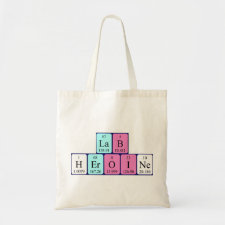
Authors: Li YC, Fu QQ, Zhang QQ, He LC
Article Title: Preparation and evaluation of uniform-size (-)-ephedrine-imprinted polymeric microspheres by multi-step swelling and suspension polymerization.
Publication date: 2006
Journal: Analytical Sciences
Volume: 22
Issue: (10)
Page numbers: 1355-1360.
DOI: 10.2116/analsci.22.1355
Alternative URL: http://www.jstage.jst.go.jp/article/analsci/22/10/1355/_pdf
Abstract: Ephedrine-imprinted polymeric microspheres have been prepared in an aqueous system by multi-step swelling and suspension polymerization, using methacrylic acid (MAA) as a functional monomer, and ethylene glycol dimethacrylate (EGDMA) as a cross-linker. Scanning electron microscopy (SEM) was used as a means to identify the structure features of the obtained polymers. Further, we examined the recognition mechanism of the polymers and the influences of some chromatographic conditions, such as the mobile-phase composition, flow-rate, column temperature and sample amount on the retentivity and selectivity for (-)-ephedrine and (+)-ephedrine. The results reveal that stable macroporous polymer beads with good size monodispersity were obtained, the average size of which was 3 - 5 μm. Baseline chiral separation of the template isomers was achieved on a short column (50 mm x 4.6 mm i.d.) when the prepared polymer beads were used as a stationary phase, while the non-imprinted polymers (NIPS) did not show such ability. The optimized chromatographic condition was as follows: acetonitrile-acetic acid (99.8/0.2, v/v) as the mobile phase; sample amount, 40 - 80 mu g; flow rate, 1.0 ml min(-1); and column temperature, room temperature, respectively. It is assumed that two classes of binding sites exist in the porous polymers, one being hydrophilic binding sites, the other being hydrophobic binding sites
Template and target information: ephedrine



Join the Society for Molecular Imprinting

New items RSS feed
Sign-up for e-mail updates:
Choose between receiving an occasional newsletter or more frequent e-mail alerts.
Click here to go to the sign-up page.
Is your name elemental or peptidic? Enter your name and find out by clicking either of the buttons below!
Other products you may like:
 MIPdatabase
MIPdatabase









